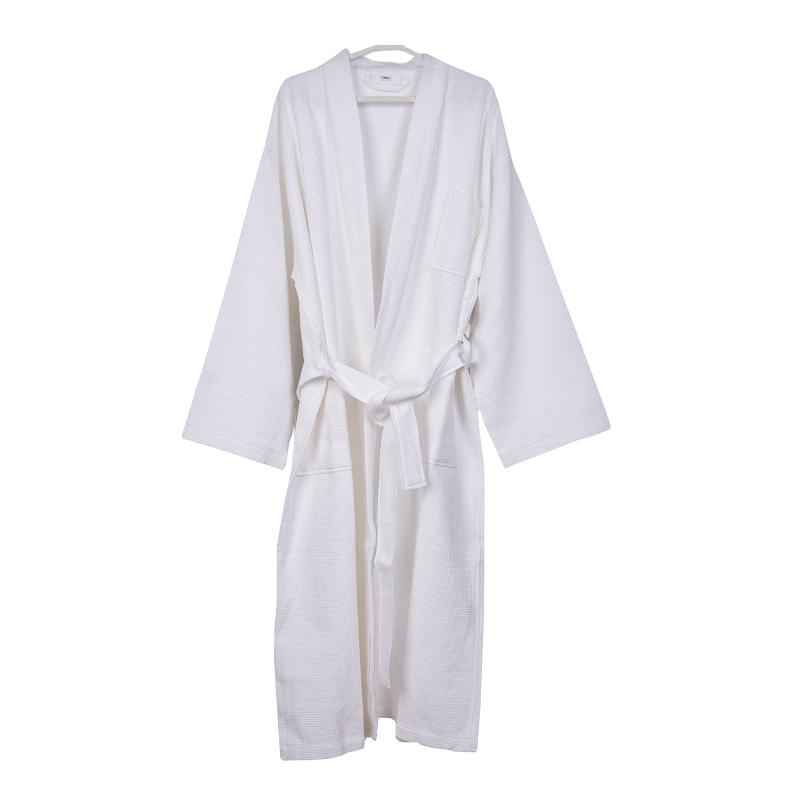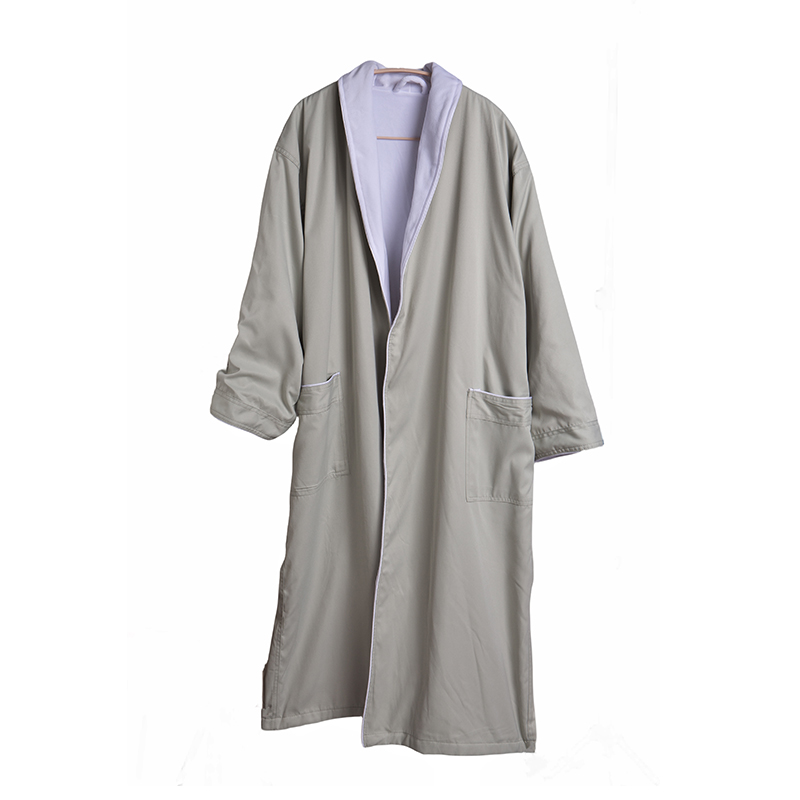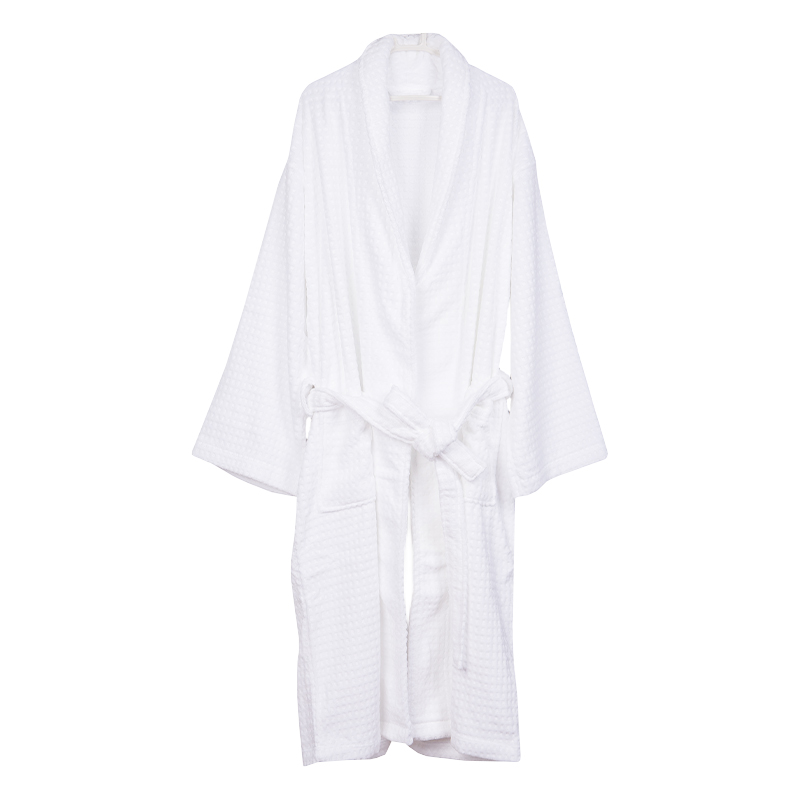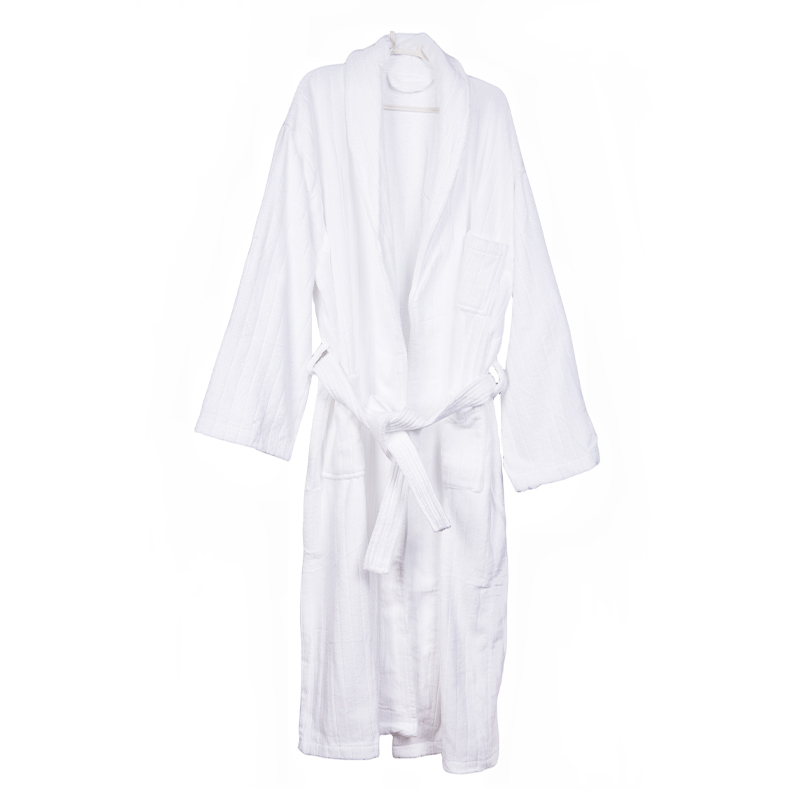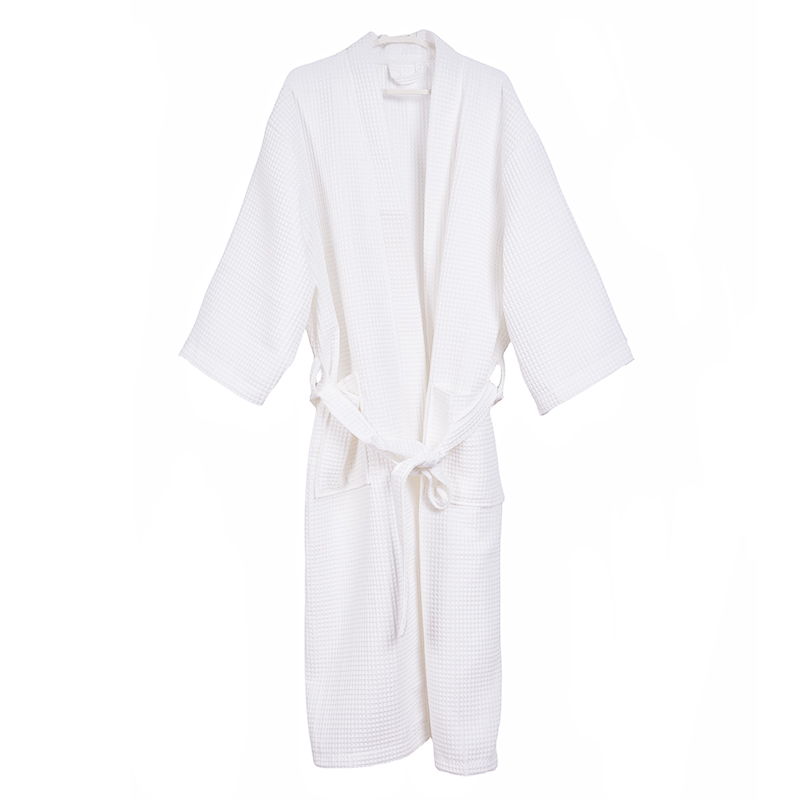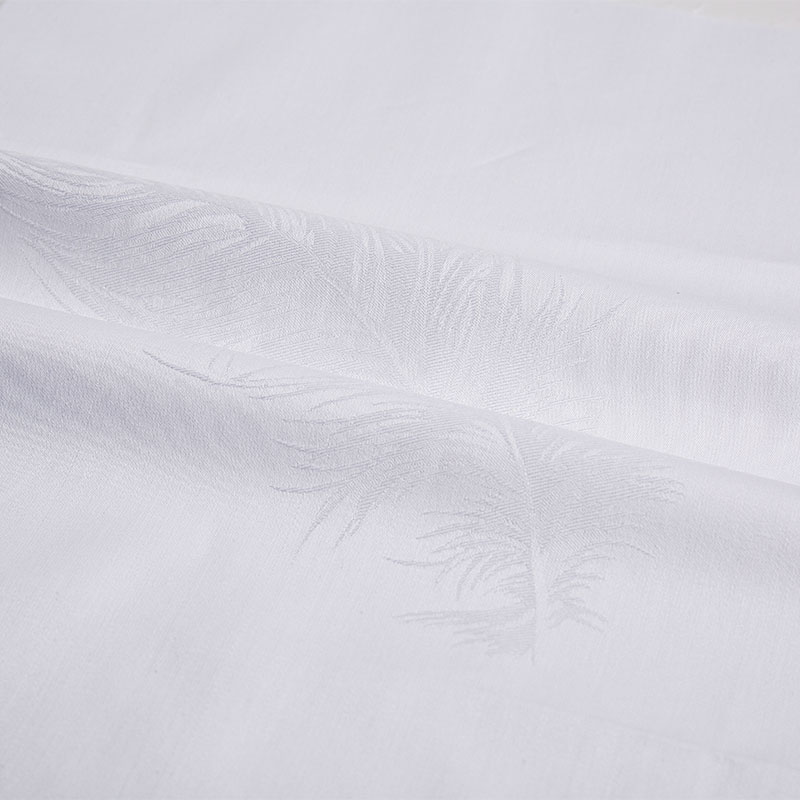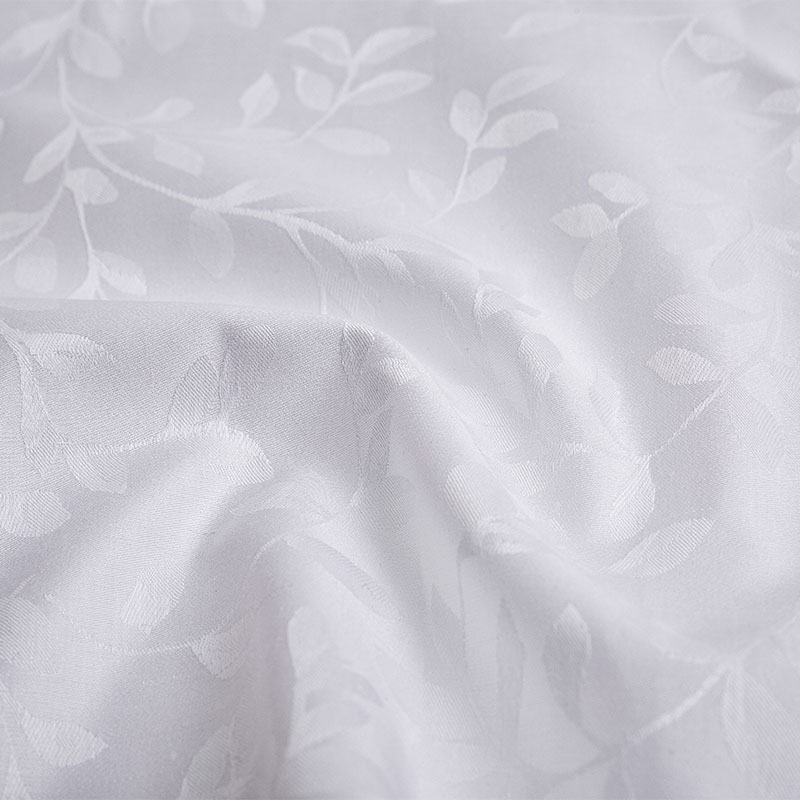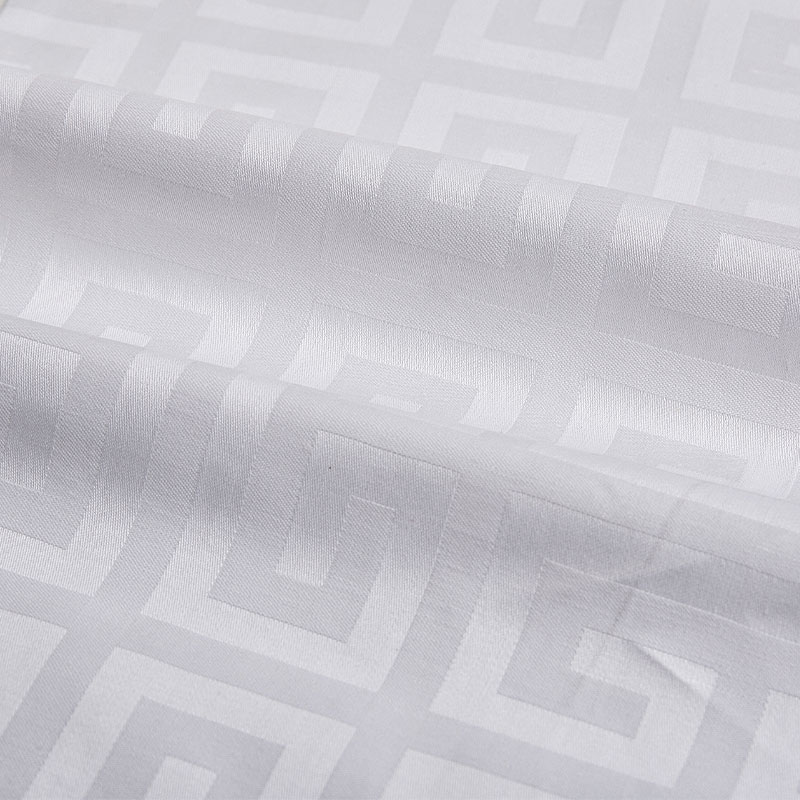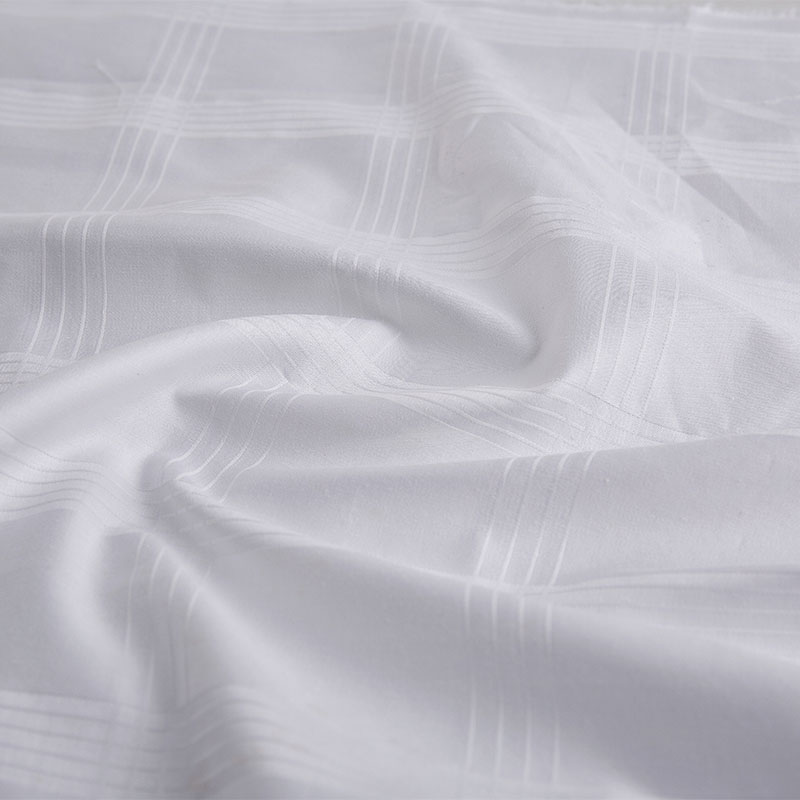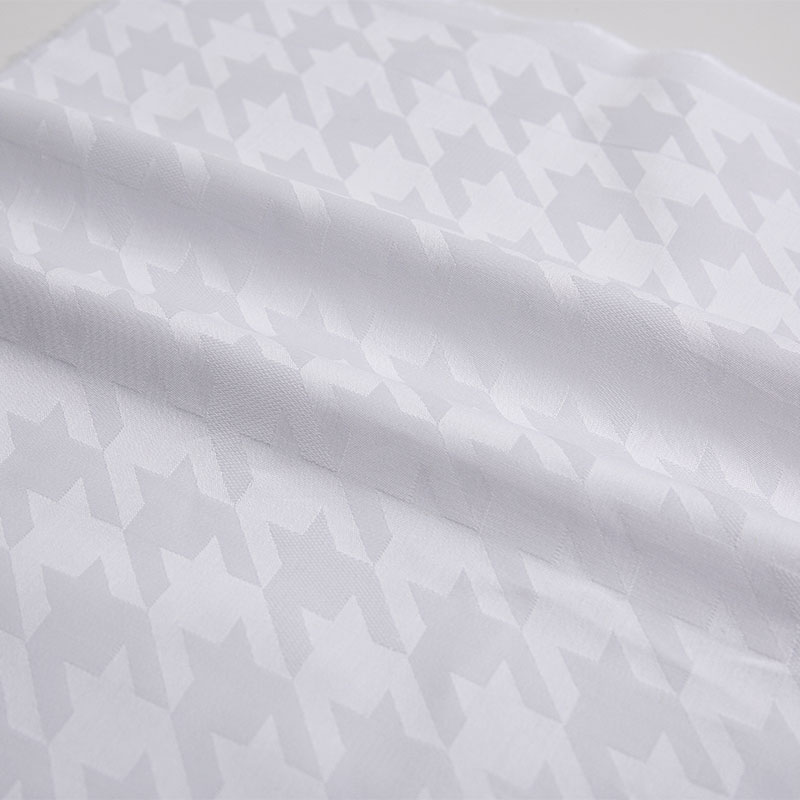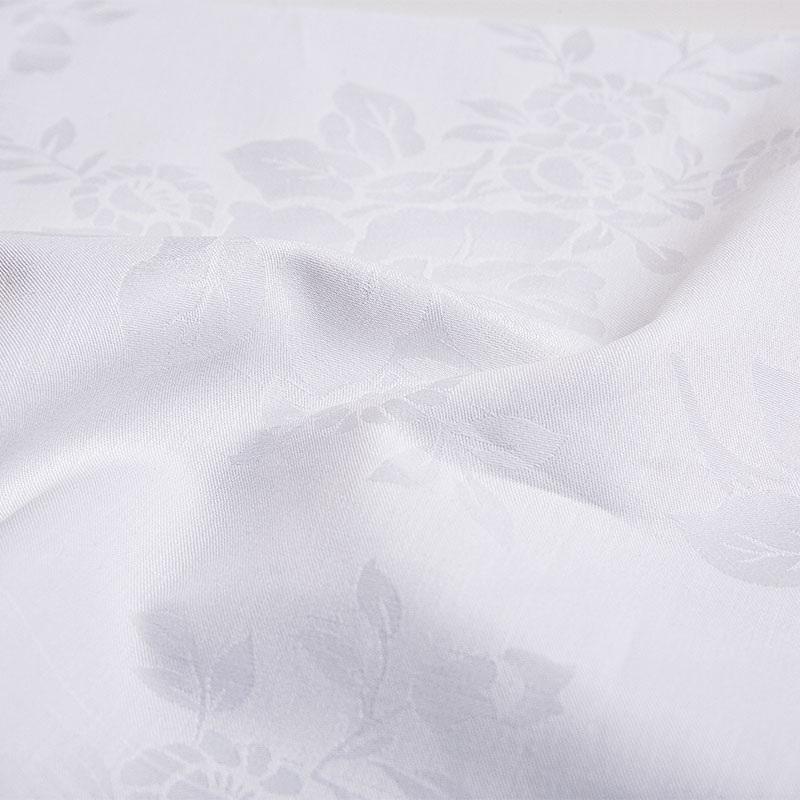1. Core advantages of pure cotton
Good water absorption:
The pores in the pure cotton fiber structure can quickly absorb moisture. Experiments show that its hygroscopicity exceeds that of synthetic materials, making it suitable for use after bathing. High-end hotels focus on guest experience, and pure cotton bathrobes can quickly absorb moisture from the body surface to avoid dampness and discomfort.
Skin-friendly and comfortable:
Pure cotton is naturally soft, has no chemical stimulation, and is suitable for sensitive skin. Hotel bathrobes need to frequently contact the skin of guests. The breathability and gentle touch of pure cotton can enhance the stay experience and reduce the risk of allergies.
Durability and easy maintenance:
After high-density weaving and combing, pure cotton bathrobes can withstand high-frequency washing in hotels, and are not easy to deform and pill, reducing replacement costs. Hotel linens are washed 3-5 times a week on average, and pure cotton is more washable than bamboo fiber.
2. Practical considerations for hotel operations
Cost and mature supply chain:
The supply of pure cotton raw materials is stable, and large-scale production makes costs controllable. When hotels purchase in bulk, the cost performance is higher than bamboo fiber or silk.
Hygiene and standardization management:
Pure cotton is resistant to high temperature bleaching and disinfection, and meets the strict hygiene standards of the hotel. However, synthetic fibers (such as polyester) may age due to high temperature washing. Although bamboo fiber has good antibacterial properties, it is easily damaged by disinfectants.
3. Comparison of other materials
Bamboo fiber: Although it is environmentally friendly and antibacterial, it is expensive (about 30% more expensive than pure cotton) and easy to pill.
Microfiber: It dries quickly but has a poor touch. It is mostly used in gyms and does not meet the comfort needs of hotels.
Flannel/silk: The former is suitable for winter but has poor water absorption, and the latter is more difficult to maintain. Both cannot meet the general needs throughout the year.

 EN
EN English
English русский
русский Español
Español عربى
عربى
 Online Message
Online Message


